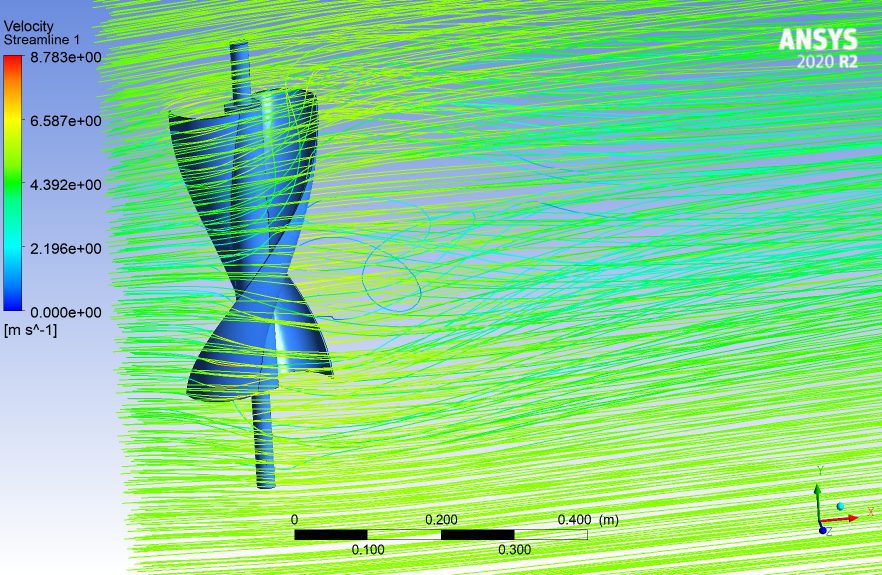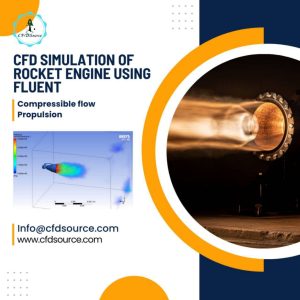Are you passionate about fluid dynamics, computational modeling, and engineering? If so, a career as a Computational Fluid Dynamics (CFD) engineer might be the perfect fit for you. This article will guide you through the journey of becoming a CFD engineer, outlining the educational requirements, essential skills, job opportunities, and the challenges you might encounter along the way.
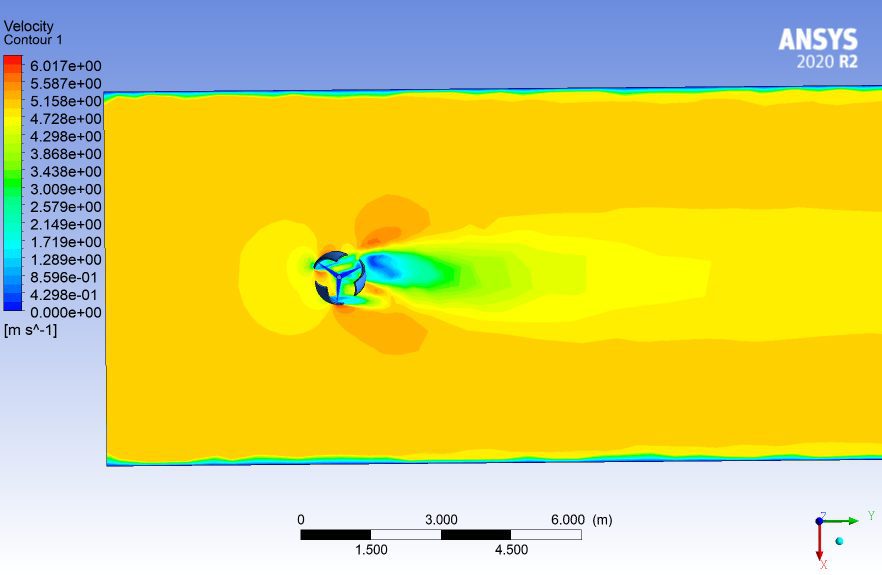
1. Introduction
Becoming a CFD engineer is an exciting journey into the world of computational fluid dynamics and engineering. It’s a career path that bridges the gap between science and technology, allowing professionals to tackle complex problems related to fluid flow and heat transfer. CFD engineers are in high demand across various industries, playing a critical role in the development and optimization of products and systems. The beauty of this field is that it provides the opportunity to make predictions, simulate real-world scenarios, and refine designs with a level of precision that is essential in today’s competitive engineering landscape. As a CFD engineer, you become the architect of fluid dynamics, harnessing the power of mathematics and advanced software to unlock the secrets of fluid behavior.
2. What is a CFD Engineer?
A CFD engineer is a specialist in the fascinating realm of Computational Fluid Dynamics (CFD). CFD engineers are the architects of fluid flow and heat transfer simulations, utilizing powerful computer software and mathematical models to analyze and solve complex problems. Imagine being able to predict how air flows over an airplane wing, how water circulates in a cooling system, or how heat dissipates in a combustion chamber. CFD engineers bring these scenarios to life through numerical simulations. They break down the behavior of fluids, whether they are gases or liquids, into tiny elements, solving equations for each of them to gain a comprehensive understanding of the entire system’s performance. In essence, CFD engineers are the modern-day wizards who wield the magic of computational modeling to create virtual realities for fluid dynamics.
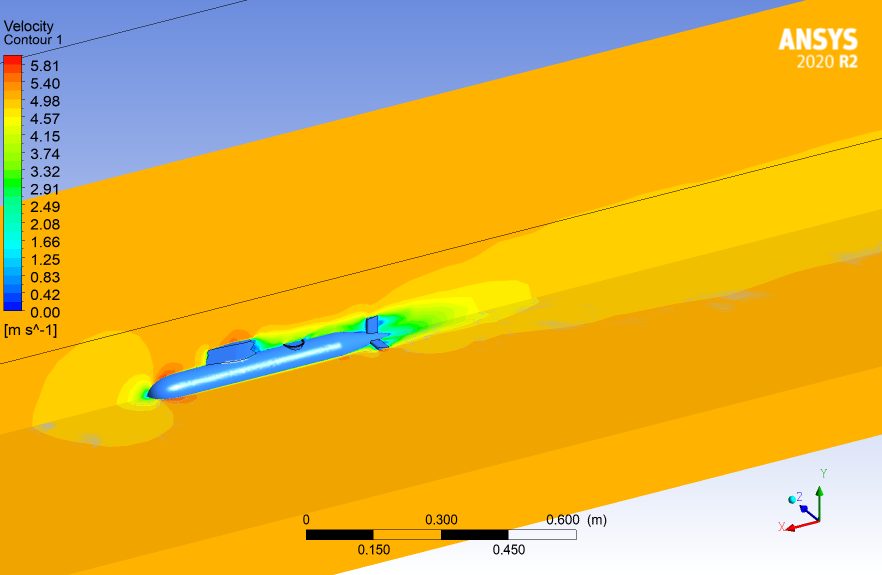
3. Qualifications and Educational Requirements
To embark on the exhilarating journey of becoming a CFD engineer, you must first build a solid educational foundation. Typically, a bachelor’s degree in mechanical engineering, aerospace engineering, or a closely related field serves as the entry point. These programs equip students with fundamental knowledge in mathematics, physics, and engineering principles. However, many aspiring CFD engineers go a step further and pursue advanced degrees. A master’s or Ph.D. in CFD or a related discipline can significantly enhance your understanding of the subject matter and open doors to more specialized roles and research opportunities. Furthermore, such advanced degrees are often preferred by employers in competitive industries where in-depth knowledge is paramount.
4. Essential Skills for a CFD Engineer
As you delve deeper into the realm of CFD engineering, you’ll discover that certain skills are indispensable for success in this field. One of the most critical is a profound understanding of fluid dynamics. You’ll need to grasp the intricacies of how fluids behave under different conditions, whether it’s the aerodynamics of an aircraft or the thermal analysis of a power plant. Beyond this, proficiency in using specialized software tools is a must. CFD simulations are primarily performed using software like ANSYS Fluent, COMSOL, and OpenFOAM, which require a high level of technical competence. Additionally, problem-solving skills are at the core of a CFD engineer’s toolkit. The ability to analyze complex issues, develop mathematical models, and derive practical solutions is what sets CFD engineers apart. Your work will often involve identifying bottlenecks, optimizing designs, and troubleshooting real-world engineering challenges, making adaptability and creativity equally important skills in your arsenal.
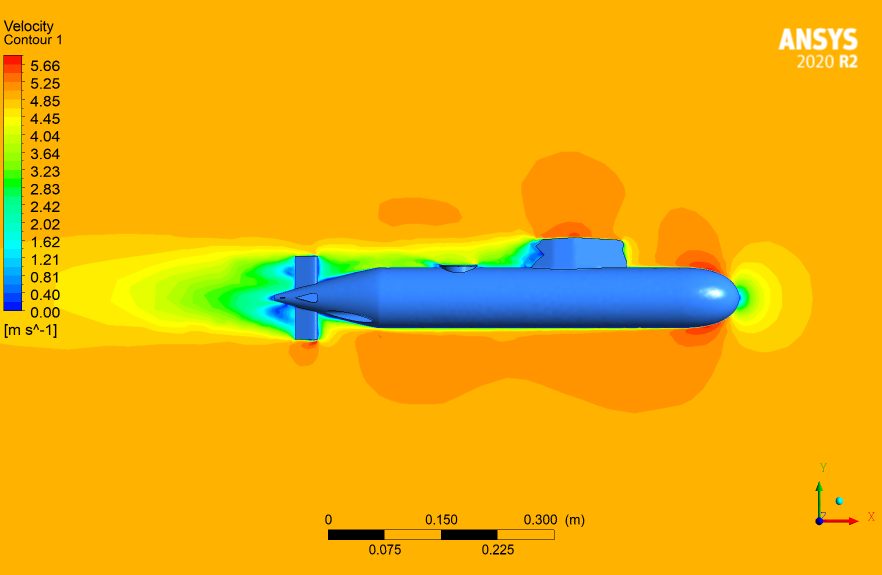
5. Gaining Relevant Experience
Gaining relevant experience as a budding CFD engineer is pivotal to your success in the field. While formal education equips you with a foundational understanding of fluid dynamics and computational methods, practical experience takes your skills to the next level. Internships and co-op programs are excellent starting points. These opportunities allow you to work alongside experienced professionals, engaging in real-world projects that often mirror the challenges faced by CFD engineers. It’s in these settings that you’ll learn how to translate theoretical knowledge into practical applications, hone your problem-solving skills, and navigate the complexities of CFD software.
In addition to internships, consider engaging in research projects. Collaborating with university professors or industry experts on research initiatives can provide a deeper understanding of CFD and open doors to more specialized roles. Research projects often involve working on cutting-edge technologies, which not only enhance your skills but also contribute to the development of new engineering solutions.
Another avenue for gaining experience is through part-time positions or freelance work. These roles allow you to take on smaller projects or consultancy work, which can be a stepping stone to more substantial opportunities in the future. Moreover, don’t underestimate the value of personal projects. Experimenting with CFD simulations on your own can be a fantastic way to expand your skills, test your knowledge, and demonstrate your passion to potential employers.
6. The Role of Software in CFD Engineering
The role of software in CFD engineering cannot be overstated. CFD simulations are conducted using specialized software that empowers engineers to create accurate models of fluid flow and heat transfer. These software tools are the backbone of CFD engineering, and proficiency in using them is a cornerstone of success in the field.
Some of the most commonly used CFD software packages include ANSYS Fluent, COMSOL Multiphysics, and OpenFOAM. These tools offer a range of features and capabilities, making them suitable for various applications. ANSYS Fluent, for instance, is renowned for its versatility and extensive capabilities. It can simulate everything from simple internal flows to complex multiphase flows with heat transfer. COMSOL Multiphysics, on the other hand, is valued for its ability to model coupled physics phenomena, making it a valuable asset for engineers working on multidisciplinary projects. OpenFOAM, an open-source CFD software, offers flexibility and customization options, making it a popular choice for researchers and industries seeking tailor-made solutions.
As a CFD engineer, you’ll need to become proficient in using one or more of these software packages. This involves not only understanding the user interface but also mastering the underlying mathematical principles and numerical techniques that these tools rely on. Building a solid foundation in CFD software is an ongoing process, as software packages evolve and new features are introduced. Continuous learning and staying updated with the latest software developments are essential to ensure your skills remain competitive.
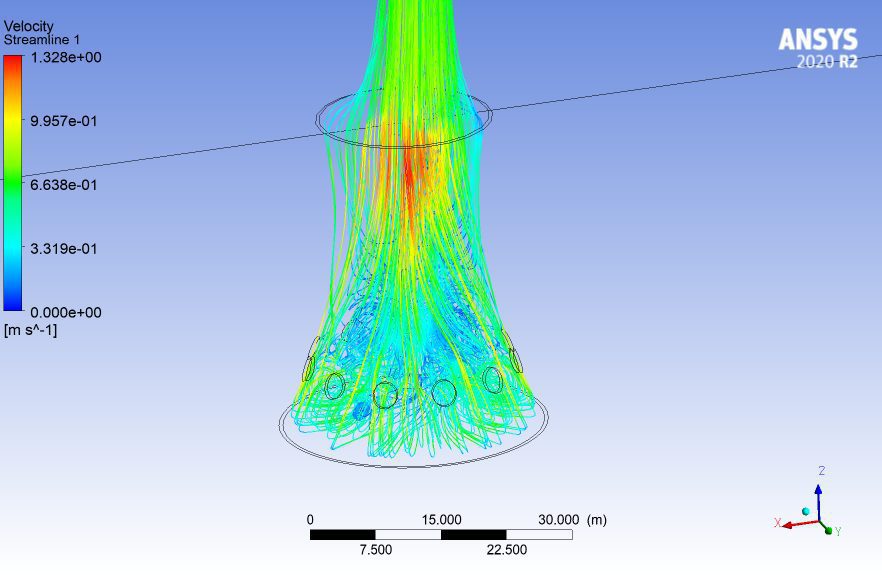
7. Job Opportunities and Industry Sectors
The skills of a CFD engineer are highly sought after in various industries. Understanding the job opportunities and industry sectors where CFD engineering plays a vital role is crucial in shaping your career path.
One of the prominent sectors for CFD engineers is the aerospace industry. CFD is used to optimize aerodynamic designs, simulate airflow around aircraft, and enhance propulsion system efficiency. The ability to predict and improve the performance of aerospace systems is paramount in this industry.
The automotive sector is another significant player in the demand for CFD engineers. Engineers here use CFD to optimize vehicle designs for improved fuel efficiency, reduce aerodynamic drag, and enhance safety features. This industry offers a wide range of roles, from working with Formula 1 teams to developing sustainable electric vehicles.
The energy sector relies heavily on CFD to model the behavior of fluids and heat transfer in power plants, refineries, and renewable energy systems. CFD engineers play a crucial role in optimizing energy production and reducing environmental impact.
Environmental consulting firms also employ CFD engineers to assess environmental impact and safety in various projects. From assessing air quality in urban areas to designing effective ventilation systems, CFD engineers contribute to creating a cleaner and safer environment.
Beyond these sectors, CFD engineering has applications in virtually any field where fluid dynamics plays a role. Whether it’s simulating the flow of blood in the medical field or optimizing cooling systems in data centers, CFD engineers have the opportunity to make a significant impact across diverse industries. Understanding these sectors and the specific roles within them can help you tailor your career to your interests and expertise.
8. Challenges Faced by CFD Engineers
While a career as a CFD engineer is undoubtedly rewarding, it is not without its fair share of challenges. One of the primary challenges is the complexity of the simulations involved. CFD engineers are tasked with modeling real-world scenarios, which often involve intricate geometries, varying boundary conditions, and multiphase interactions. Ensuring the accuracy of these simulations can be a daunting task, and it’s not uncommon to encounter unexpected complications.
Meeting deadlines is another common challenge in the world of CFD engineering. As simulations can be time-consuming, managing your workflow and delivering results within tight project timelines can be stressful. Balancing the need for precision with the necessity of efficiency is an art that CFD engineers must master.
Furthermore, ensuring that your models are representative of real-world behavior is essential. When simulations diverge from reality, it can lead to costly errors and project setbacks. Achieving convergence, where simulation results stabilize and match experimental data, is an ongoing challenge that requires careful tuning and validation.
Software limitations can also present hurdles for CFD engineers. While CFD software packages are powerful, they have their limitations in terms of the size and complexity of simulations they can handle. Working with large-scale simulations often necessitates high-performance computing (HPC) resources, and ensuring the compatibility of your software with HPC systems can be a technical challenge.
Lastly, CFD engineers often find themselves troubleshooting. Debugging simulation issues, resolving errors, and fine-tuning models are regular aspects of the job. Patience, persistence, and an analytical mindset are crucial in overcoming these challenges.

9. CFD Engineer Salary and Compensation
CFD engineers are well-compensated for their expertise and the challenges they face in their roles. Salaries for CFD engineers can vary based on several factors, including experience, education, location, and the specific industry they work in.
At the entry level, CFD engineers can expect competitive salaries. A junior CFD engineer with a bachelor’s degree can earn a respectable income, typically higher than the average for engineering graduates. However, as you gain experience and expertise, your earning potential increases significantly.
Those with master’s or Ph.D. qualifications often command higher salaries. Advanced degrees not only deepen your knowledge but also demonstrate your dedication to the field, making you a valuable asset to employers.
The location of your employment can also influence your salary. In regions with a high demand for CFD engineers, such as aerospace hubs or technology centers, salaries tend to be more competitive. Additionally, the cost of living in a particular area can impact your overall compensation package.
The industry you choose to work in plays a pivotal role in determining your salary. For example, aerospace and automotive industries tend to offer competitive compensation packages due to the specialized skills required and the high-stakes nature of their projects. The energy sector and research institutions also provide attractive salaries to CFD engineers.
The median salary for CFD engineers in the United States, for example, is typically above the national average for engineering professionals. However, it’s important to note that salary data can vary from country to country, so it’s advisable to research specific regions and industries to gain a better understanding of earning potential.
In addition to base salaries, many CFD engineers receive benefits and bonuses as part of their compensation packages. These benefits can include health insurance, retirement plans, and performance-based bonuses. Overall, the field of CFD engineering offers financial rewards that reflect the level of expertise and the value that CFD engineers bring to their respective industries.
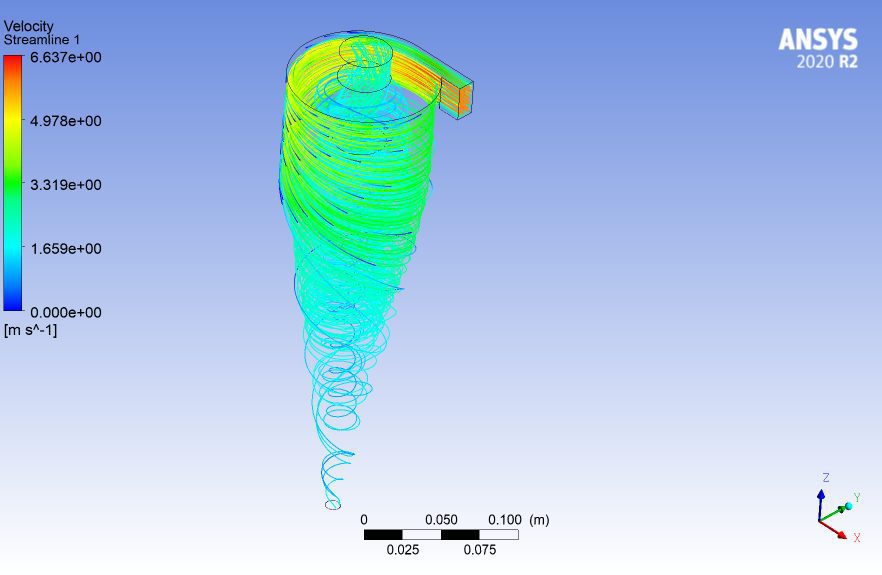
10. Career Progression and Growth
The field of CFD engineering offers ample opportunities for career progression and growth. Whether you choose to specialize in a specific industry or advance to managerial positions, there are diverse career paths available for CFD engineers.
One common path for career progression is to move from junior or entry-level positions to more senior roles. This can involve taking on more complex projects, leading teams, and having greater responsibilities in simulation and analysis. As you gain experience, your expertise becomes more specialized, and you may have the opportunity to work on cutting-edge projects within your chosen industry.
For those seeking leadership roles, transitioning into management is a viable option. CFD engineers with a strong track record of successful projects and good communication skills can move into positions like CFD project manager or engineering manager. These roles involve overseeing multiple projects, managing teams, and making strategic decisions that influence the direction of the company.
Another avenue for career growth is to become a subject matter expert in a specific area of CFD. This can involve further education, research, and publications in your chosen field. As a recognized expert, you may be sought after for consulting, teaching, or research roles, and you can contribute to advancing the knowledge and techniques within the CFD community.
Additionally, some CFD engineers choose to become entrepreneurs and start their own consulting firms or software development companies. This path requires not only technical expertise but also business acumen. By providing CFD services or developing specialized software tools, you can carve out a niche in the market and create opportunities for innovation.
As the field of CFD engineering continues to evolve and grow, so do the career possibilities. By staying adaptable, pursuing continuous learning, and actively seeking out new challenges, CFD engineers can shape their careers to align with their goals and aspirations.
11. Conclusion
In conclusion, embarking on a career as a Computational Fluid Dynamics (CFD) engineer is a thrilling journey filled with opportunities and challenges. This field allows professionals to delve into the intricate world of fluid dynamics, applying mathematical models and advanced software to solve real-world problems. Whether it’s optimizing the aerodynamics of an aircraft, improving the efficiency of a power plant, or enhancing the safety of automotive designs, CFD engineers play a crucial role in diverse industries.
To become a successful CFD engineer, it’s vital to invest in your education, acquire essential skills, gain practical experience, and stay updated with industry trends. Networking and building professional relationships can open doors to exciting opportunities and collaborations. As you progress in your career, you can expect competitive compensation and various paths for growth, whether you specialize, transition into management, or explore entrepreneurship.
The field of CFD engineering offers a dynamic and fulfilling career, and as you embark on this journey, remember that your contributions have the potential to drive innovation, improve engineering solutions, and address the complex challenges of our ever-evolving world.
